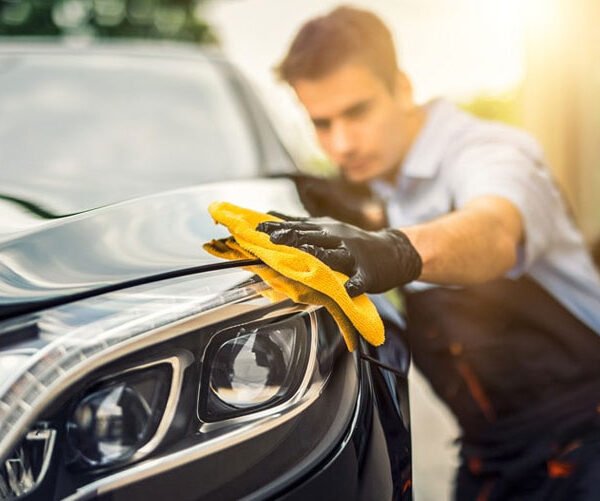10 Tips for Maintaining Your Car’s Engine Performance
The rhythmic purr of a smoothly running engine is music to any car owner’s ears. Your car’s engine performance has a profound impact on its fuel efficiency, drivability, and longevity. From your daily commute to a weekend getaway, you depend on your car’s engine to get you where you want to go. That’s why proper engine maintenance is essential for optimal performance.
Neglected engines deteriorate rapidly, leading to sluggish acceleration, poor gas mileage, and ultimately expensive repairs down the road. However, with proactive maintenance centered around critical components like oil, filters, ignition, and cooling systems, your engine can continue delivering peak performance and efficiency for years to come.
This article will explore 10 vital tips car owners should follow to maintain their engine in tip-top shape. Adopting even a few of these fundamental best practices can significantly extend the lifespan of your engine while saving you money on costly repairs. So read on to learn simple, practical steps for keeping your car’s hardworking engine happily humming along.
Why Engine Maintenance Matters
Before diving into the maintenance tips, it’s helpful to understand why regular engine care is so critical for your car’s performance.
As the heart of your vehicle, the engine transforms fuel and air into the power that propels your car. This complex machined network of parts must synchronize perfectly to run properly. Internal components endure tremendous heat and friction during combustion and rotating parts can wear out over time. That’s why manufacturers recommend periodic engine maintenance.
Following factory guidelines on oil changes, fluid checks, tune-ups and part replacement is the best way to achieve long-lasting peak performance. With basic maintenance, your engine can reliably deliver hundreds of thousands of miles of smooth, efficient operation over years of dutiful service.
10 Vital Tips to Maintain Optimal Engine Performance
Follow these 10 engine care best practices religiously to keep your car running like new:
1. Change Oil Regularly
Oil is the lifeblood of your engine, lubricating critical components and preventing excessive wear. Regular oil and filter changes help remove grit and dirt that can damage internal parts. Most automakers recommend oil changes every 5,000-7,500 miles or 6-12 months. Choosing high-quality oil tailored to your engine can enhance performance. Synthetic blends provide superior flow in extreme temps.
With each oil change, replace the filter as well to remove impurities. Check oil levels monthly and top off if needed. Burning oil indicates potentially bigger issues requiring attention. But diligently changing oil is the single best practice you can adopt!
2. Check Engine Coolant System
Your engine produces tremendous heat from thousands of mini explosions happening every minute. Maintaining the proper coolant level and mixture is vital for effective cooling and preventing disastrous overheating damage.
Most cars have pressurized coolant reservoirs with MIN/MAX markers on the side. Check levels monthly when cool and top off with manufacturer’s recommended coolant blend if low. Mixing incompatible coolants can cause gelation and corrosion. Replace coolant every 2-4 years to prevent buildup and maintain ideal antifreeze/water ratios.
Watch for leaks around hoses, radiator seals and water pump. Repair any external or internal leaks immediately to sustain cooling protection. Consider a full system flush to truly revive older cooling systems.
3. Replace Air Filter Regularly
Just as your engine requires clean oil for lubrication, it also needs a steady supply of clean air for the combustion process. A restricted or dirty air filter starves your engine of air, reducing power and mileage.
Inspect your engine air filter every 6 months or 6,000-12,000 miles based on driving conditions. Replace paper filters at least once a year. Clean reusable cotton gauze filters carefully when dirty. Use manufacturer guidelines for your vehicle’s specific air filter replacement schedule.
4. Use Quality Motor Oil
Not all motor oils are created equal when it comes to protecting your engine. Higher quality synthetic and synthetic blend oils feature superior cleaning agents, preventative additives and viscosity for minimizing friction and wear. Premium oils also withstand high heat and extreme cold temps far better.
Follow your carmaker’s oil viscosity recommendations found in your owner’s manual. For most modern engines, 5W-20 or 5W-30 oils deliver optimal flow and protection across temperature ranges. Match oil standards like GF-5, SN for gasoline engines and CJ-4, CI-4 for diesels when selecting oil.
Upgrading to synthetic or synthetic blends every 5,000 miles can also boost fuel efficiency while lowering environmental impact. The extra cost pays dividends in enhanced engine durability and performance.
5. Replace Fuel Filter
Delivering clean fuel to your engine is also essential for efficiency and longevity. Just like engine oil filters, fuel filters capture contaminants that can clog injectors or damage components. Replace this inexpensive but critical filter every 20,000 – 60,000 miles based on your owner’s manual.
If you primarily drive under stop-and-go conditions, change it more often. When neglected, telltale signs of a restricted filter are declining performance, hard starts and reduced fuel economy as debris accumulates over time. Fortunately, fuel filters are easily replaced in under an hour, restoring free fuel flow.
6. Use Fuel System Cleaners
While filters catch larger particles, additional fuel injector and valve cleaning helps dissolve smaller deposits that reduce flow. Every 10,000-15,000 miles, use a quality fuel system cleaner like Chevron Techron or Red Line SI-1 to clean intake valves and fuel injectors.
Performance drops over years of tiny carbon buildup in engines, hurting mileage and responsiveness. Powerful detergents break down these deposits, supporting cleaner combustion and lower emissions. Many cleaners also contain added lubricants to protect critical fuel pump and injector components.
7. Check Ignition System Components
Delivering a strong, reliable spark is how your engine initiates combustion. Worn plugs, cracked wires and faulty ignition components translate into performance issues like misfires, rough idle and hard starting.
Inspect spark plugs every 20,000 miles for excessive wear or fouling. Replace plugs every 40,000-80,000 miles as needed based on your owner’s manual. Also check plug wires, distributor caps and rotors for damage from heat or moisture. Repair any cracked insulation, corroded contacts or excessive resistance right away.
8. Listen for Engine Sounds
Your ears can also help monitor developing engine issues before they become major repairs. Learn to identify common sounds indicating problems under the hood. Pay attention for:
- Knocking during acceleration (faulty fuel supply or timing)
- Screeching at start (failing belt/bearing)
- Ticking at idle (valve/lifter wear)
- Roaring (clogged exhaust/muffler)
Detecting these sounds early allows diagnosis of underlying issues like bad valves, failing pulleys, the catalytic converter or compression leaks across worn rings/cylinders. Address them promptly to avoid further degradation and expenses.
9. Consider Fuel Injector Service
On modern gasoline direct injection (GDI) engines, fuel injectors endure intense heat and pressure. Over 100,000+ miles, tiny nozzle openings can get restricted, affecting spray patterns and combustion.
Every 60-80k miles, consider a professional fuel injector cleaning/flow test to restore performance. Advanced ultrasonic processes clear stubborn carbon deposits and internal particulates for improved flow and atomization.
Targeted chemical soaks coupled with pressurized fluid flushing often help clean hidden internal injector parts unreachable via fuel additives. Correcting flow issues this way typically costs less than outright injector replacement.
10. Practice Defensive Driving
How you actually drive your vehicle also significantly impacts engine longevity and economy. Practicing simple defensive driving techniques helps reduce wear in meaningful ways:
- Accelerate/decelerate smoothly without revving high
- Maintain steady highway cruising speeds
- Allow your engine to fully warm up before driving hard
- Shift gears at moderate rpms
- Avoid excess idling to lower blow-by emissions
By driving conservatively and avoiding aggressive jackrabbit starts and stops, you’ll enhance engine durability and minimize exhaust emissions. Being mindful of your driving style protects critical components from undue strain.
Combining prudent driving habits with a diligent maintenance regimen keeps your engine running optimally for years beyond expected lifespan estimates. Talk about getting more bang for your buck!
Caring For Your Engine Pays Dividends
As outlined above, adopting even a few fundamental maintenance practices makes a tremendous impact on your car’s engine performance, fuel efficiency and service life. From regular oil changes to monitoring sounds and driving habits, these basic tips help preserve internal components and prevent irreparable damage down the road.
While today’s durable engines can log over 200,000 miles with proper care, neglect quickly escalates into valve jobs, ring replacements and even complete engine rebuilds costing thousands in repairs. Practicing consistent, minor maintenance is far cheaper than rebuilding a worn-out engine too far gone.











